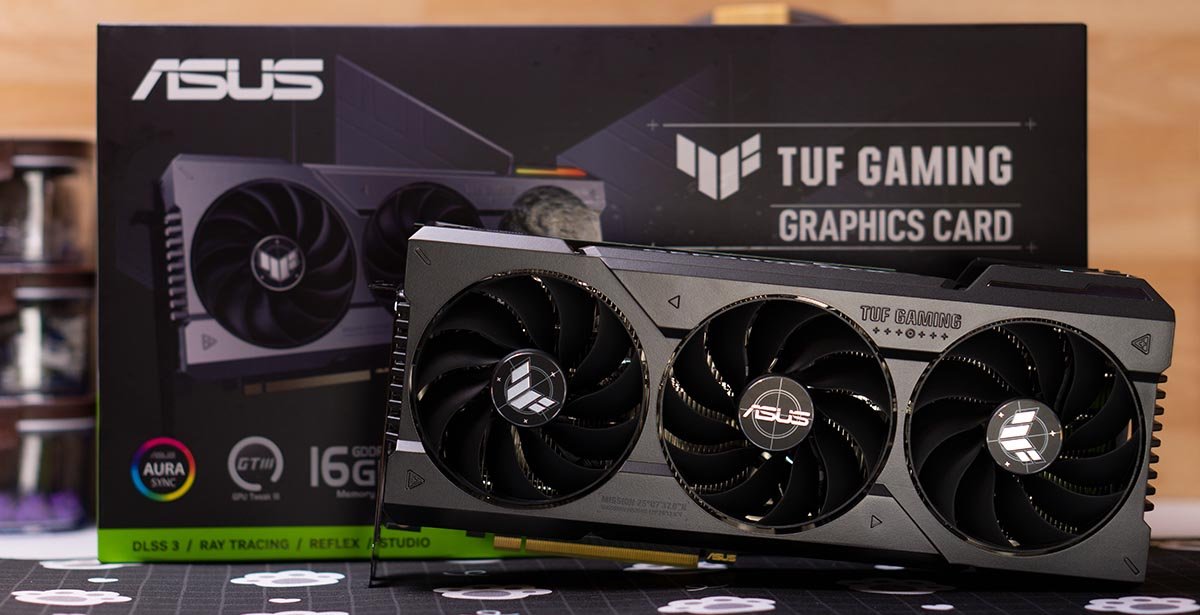
The NVIDIA GeForce RTX 4070 Ti Super is here and as usual, ASUS is back with their own rendition. The ASUS TUF gaming RTX 4070 Ti is the midrange offering from the brand sporting improved cooling, slightly higher clock speeds, and RGB lighting, and a physical BIOS switch to toggle performance modes.

| GPU | AD103-275-A1 |
| Architecture | Ada Lovelace |
| Manufacturing Process | TSMC 5nm |
| Boost Clock | 2670MHz (OC Mode), 2640MHz (Default) |
| CUDA Cores | 8,488 |
| SM | 66 |
| RT Cores | 66 |
| Tenso Cores | 264 |
| Memory | 16GB GDDR6X |
| Memory Bus Width | 256-bit |
| Memory Bandwidth | 716.8 GB/s |
| Memory Speed | 21 Gb/s |
| Default TGP | 226W |
| Max TGP | 285W |
| Power Connectors | 12VHPWR |
| Display Connections | 2x HDMI 2.1a, 3x DisplayPort 1.4a |
| Dimensions (GPU) | 305 x 138 x 65mm |
| Slots | 3.25 |
| Others | ASUS AURA Sync Support, Liquid Cooling |
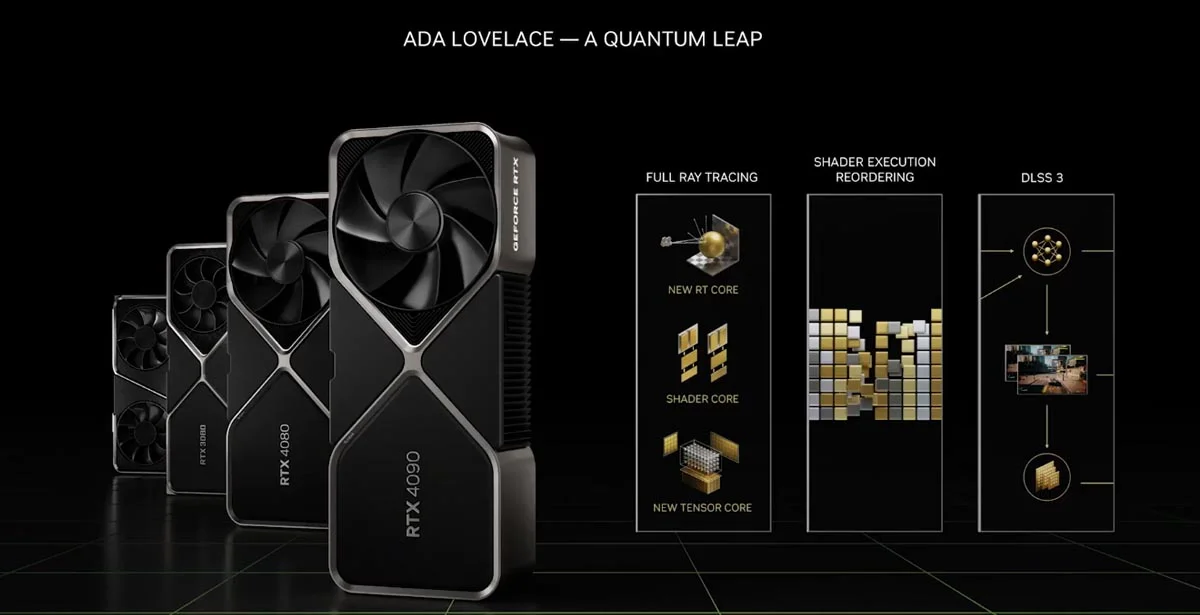
The RTX 40 Super series are still based on the Ada Lovelace architecture much like the original RTX 40 lineup. Its their 3rd generation of GPUs to sport the NVIDIA RTX technology, which enables real-time ray tracing to improve performance for next-generation lighting.
Unlike the Ampere-based 8nm RTX 30 series, the RTX 40 GPUs will use a TSMC’s 4/5nm EUV process to increase transistor counts. The Super lineup will come with more RAM, wider memory bus, and added transistors compared to their vanilla counterparts for better gaming performance.
Aside from a smaller node, its 4th Generation Tensor Cores improves on Ampere GPUs by supporting a new FP8 data format first introduced in the NVIDIA Hopper architecture. It enables the halving of storage requirements of FP16 and doubles AI performance.

NVIDIA has thrown in considerable effort to bring ray tracing to consumers. Their 3rd Generation RT Cores promises to accelerate ray tracing of alpha-tested geometry by twice compared to last generation. This will enable developers to add more details to games thanks to the performance overhead it brings.
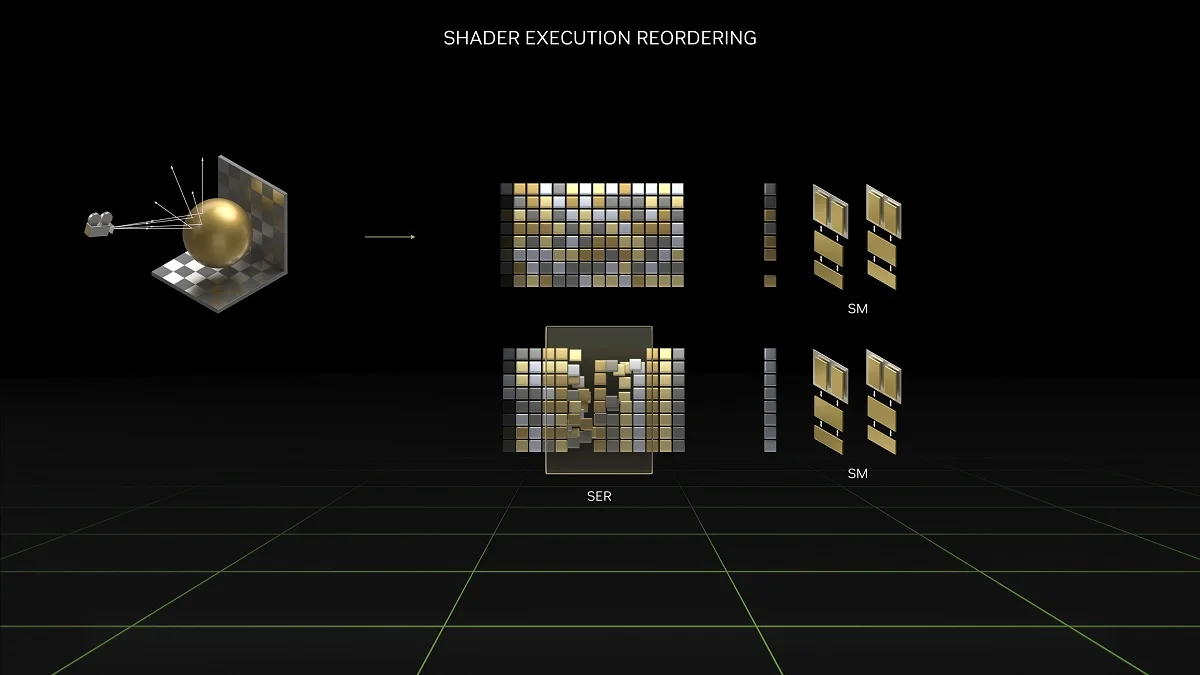
The company is also implementing what they call Shader Execution Reordering. The GPUs can now reschedule work on the fly that can speed-up ray tracing shaders by up to 2x. They say that it can boost FPS by up to 44% in games like Cyberpunk 2077 while using RT Overdrive mode.
The RTX 40 Super series, while having more transistor and ram than its predecessors, retain their original counterpart’s power consumption. While the trend is still going to get higher, it’s nice to get additional performance with the same TDP. The RTX 4070 Ti Super has the same 285W TDP but raises its RAM to 16GB GDDR6X, a wider 256-bit bus, and upping the transistor count to 45.9 million.
As for creators, the RTX 40 series supports NVENC NV1 encoder, which is helpful for streams to use higher resolutions and framerates plus additional encoding features like HDR and lower latency.
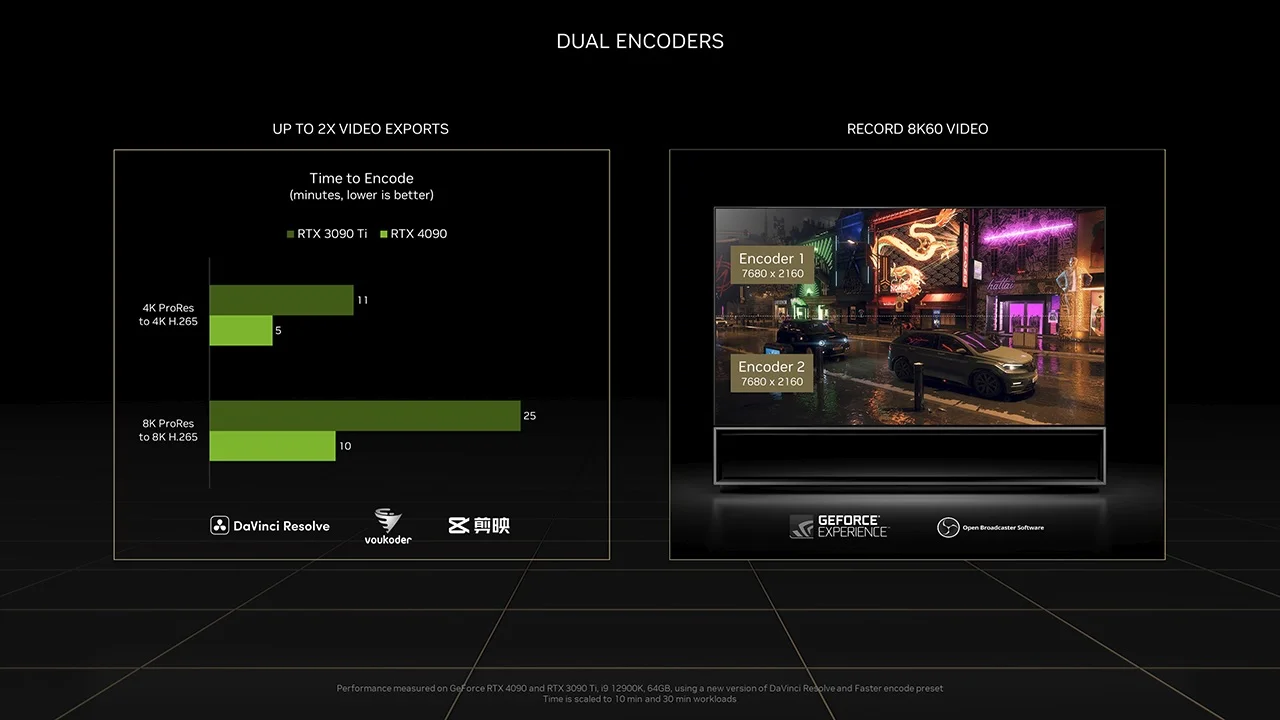
These GPUs will sport dual encoders with a new algorithm to split frames for improved encoding performance. When combined with Ada Lovelace’s architectural improvements, HEVC and AV1 encoding could be up to twice the speed on RTX 40 series compared to their predecessors.
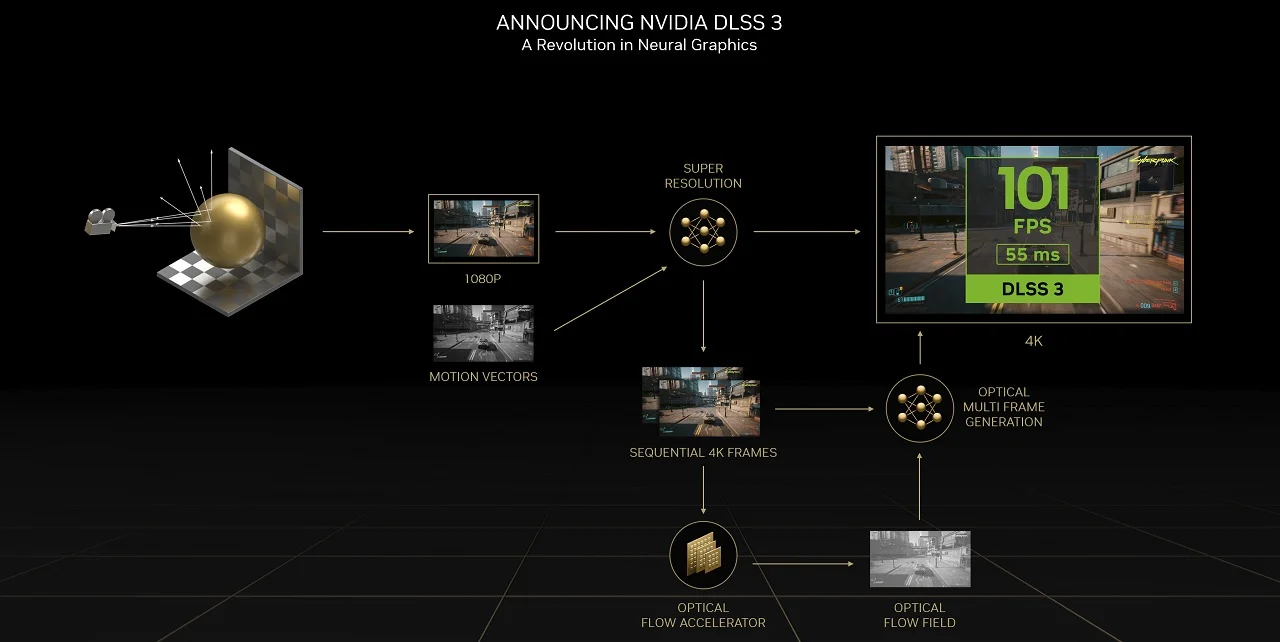
The NVIDIA RTX 40 series will also support DLSS 3 Frame Generation. Aside from AI-powered upscaling, Frame Generation promises doubling in framerate. AI will now be able to generate new frames by only using AI in order to increase performance in supported games.
This is made possible by the optical flow accelerator that predicts what the next frame will be. This AI Frame Generation is reliant on the performance uplift on Ada Lovelace GPUs and their 4th Generation Tensor Core.
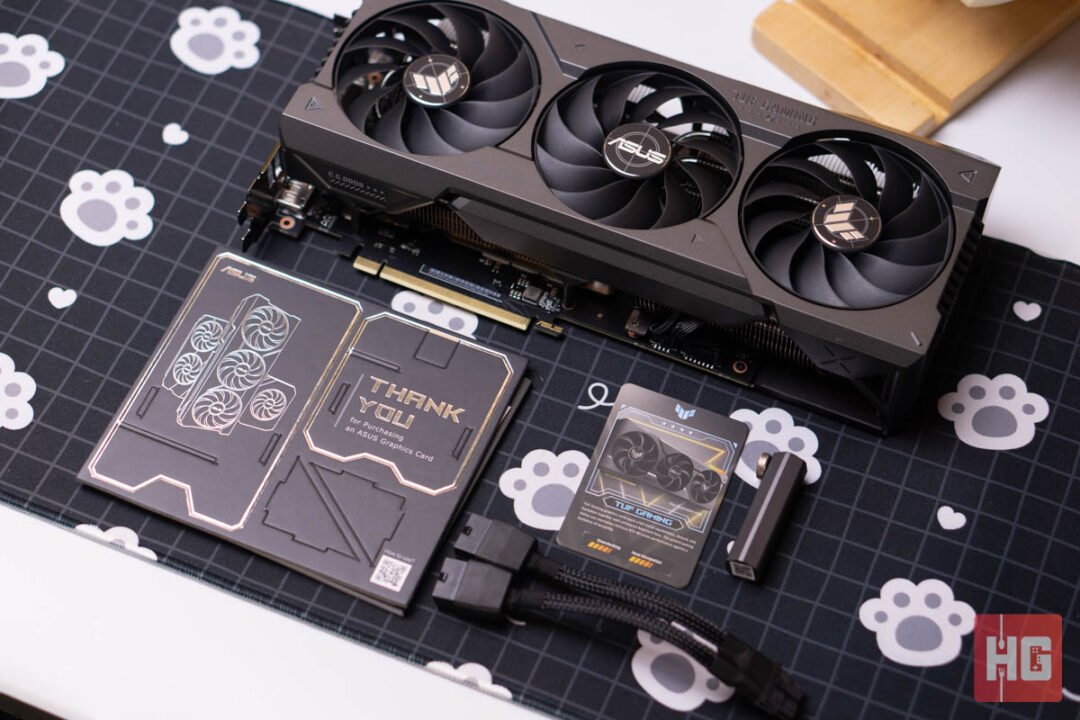
The ASUS TUF Gaming RTX 4070 Ti Super comes in the standard TUF Gaming-branded packaging – a gunmetal-themed cardboard box with tons of foam inside to protect the card. Although TUF Gaming is placed a tier below from the ROG series, ASUS hasn’t skimped on the freebies which include a sticker pack, a 12VHPWR to two 8-pin PCIe adapter, an aluminum GPU holder, Velcro loop, and a thank you card.
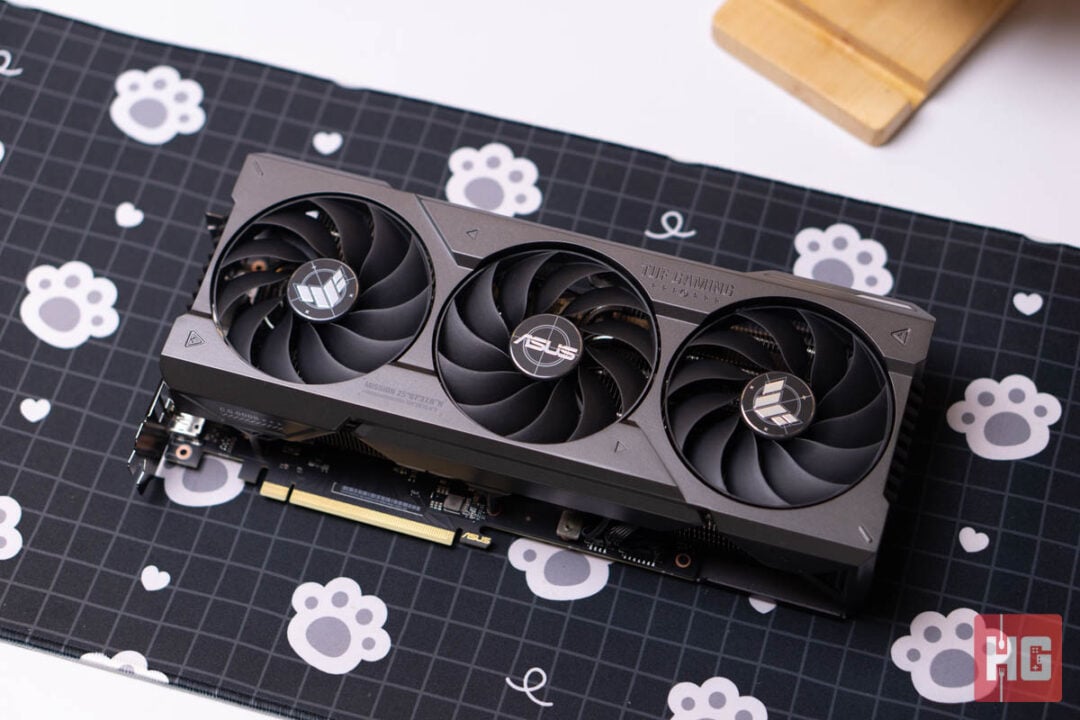
As far as design goes, there’s very little difference between the ASUS TUF Gaming RTX 4070 Ti Super and its non-Super variant. You will need to check if your case can fit the card as it measures in at 30.5cm in length. It will cover up 3.25 slots in your as it has a rather thick heatsink to cool it down.
The card sports three of ASUS’ Axial-tech fans. They are larger that the TUF Gaming RTX 30 series. It promises up to 21% more air through the card that will lead to lower temperatures and less noise. The middle fan spins counterclockwise to minimize turbulence. All fans only kick in at 50°C so the card can run silent at lighter operations.
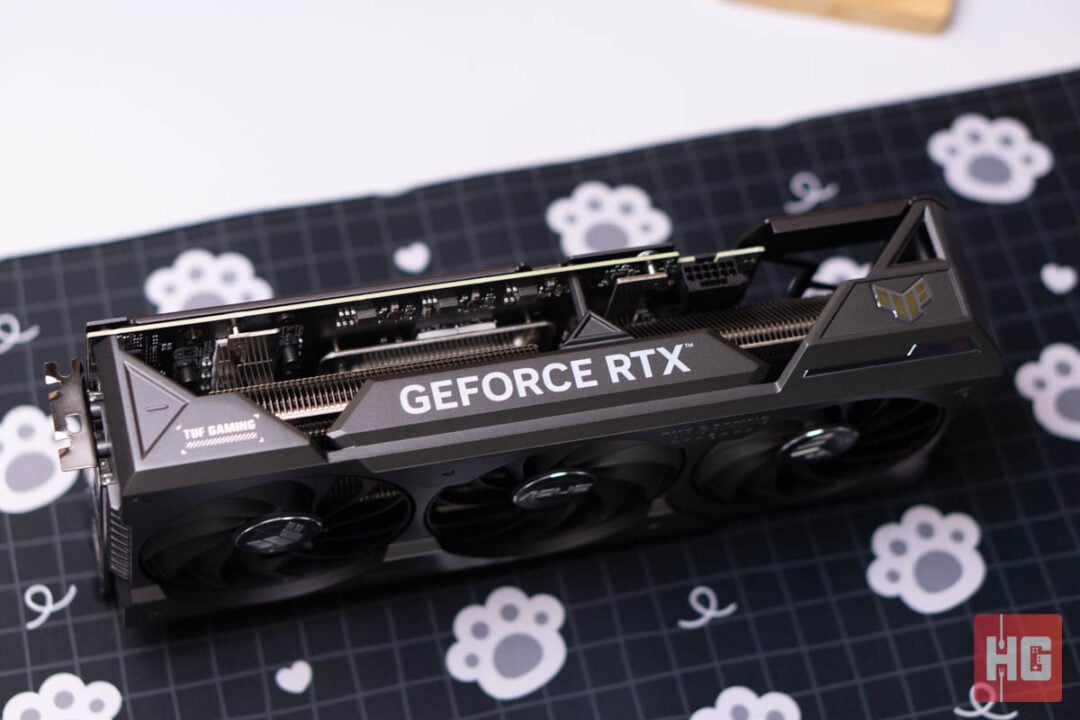
Its metal shroud has a few cut outs that exposes the fins. The GeForce RTX logo is smack right in the middle with the TUF Gaming badge placed at the left-hand side. The TUF logo and the diffused line right below are RGB lights that can be synchronized via software.
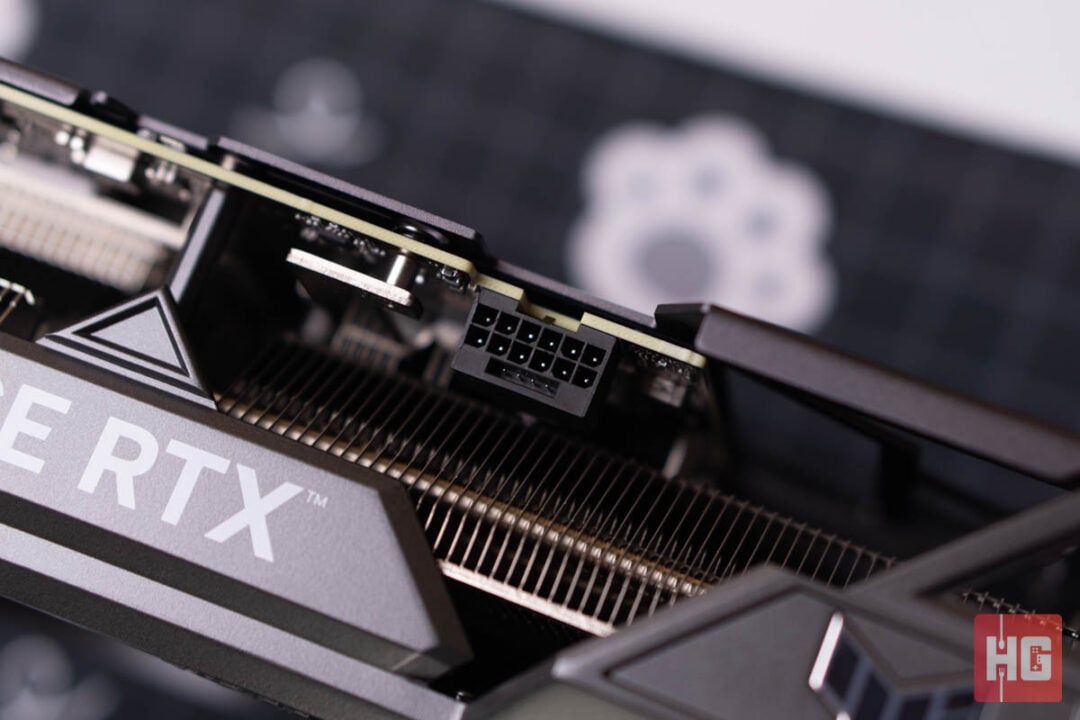
As with most RTX 40 series cards, the TUF Gaming RTX 4070 Ti Super is powered by the 12VHPWR connection. Fortunately, ASUS is bundling an adapter for two 8-pin PCIe adapters so you can still use the card if you have an older but sufficient PSU.
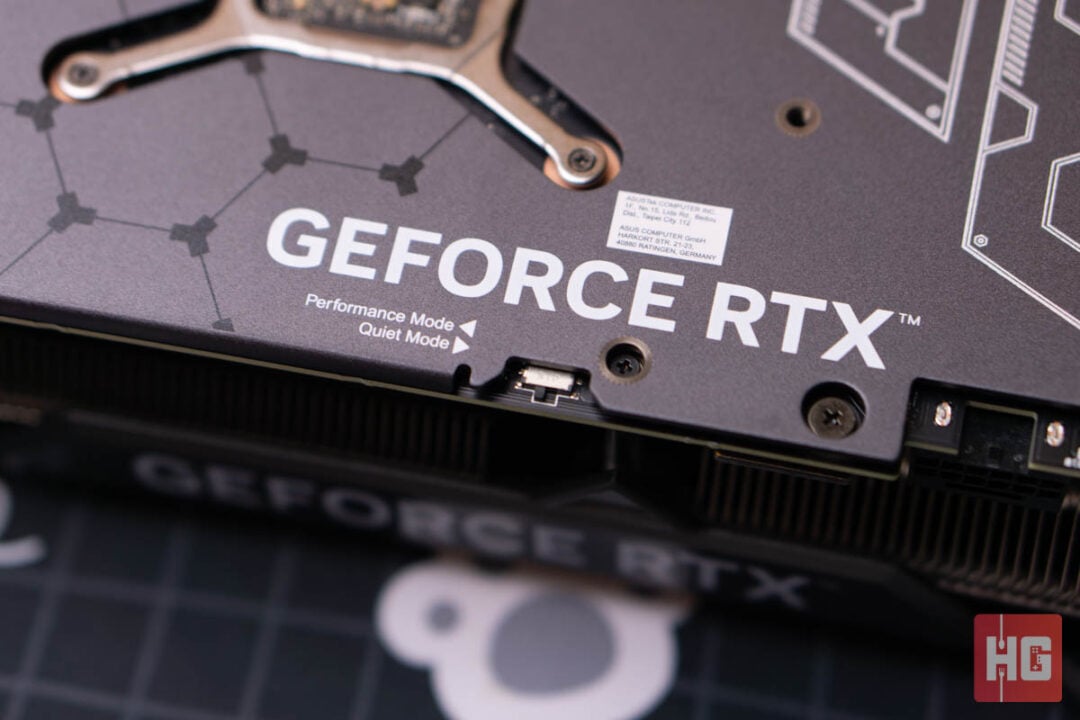
Near its power connector is a BIOS switch that turn the card from Quiet Mode to Performance Mode. The former sticks to the default boost of 2640MHz while the latter increases boost to 2670MHz – a 30MHz increase.
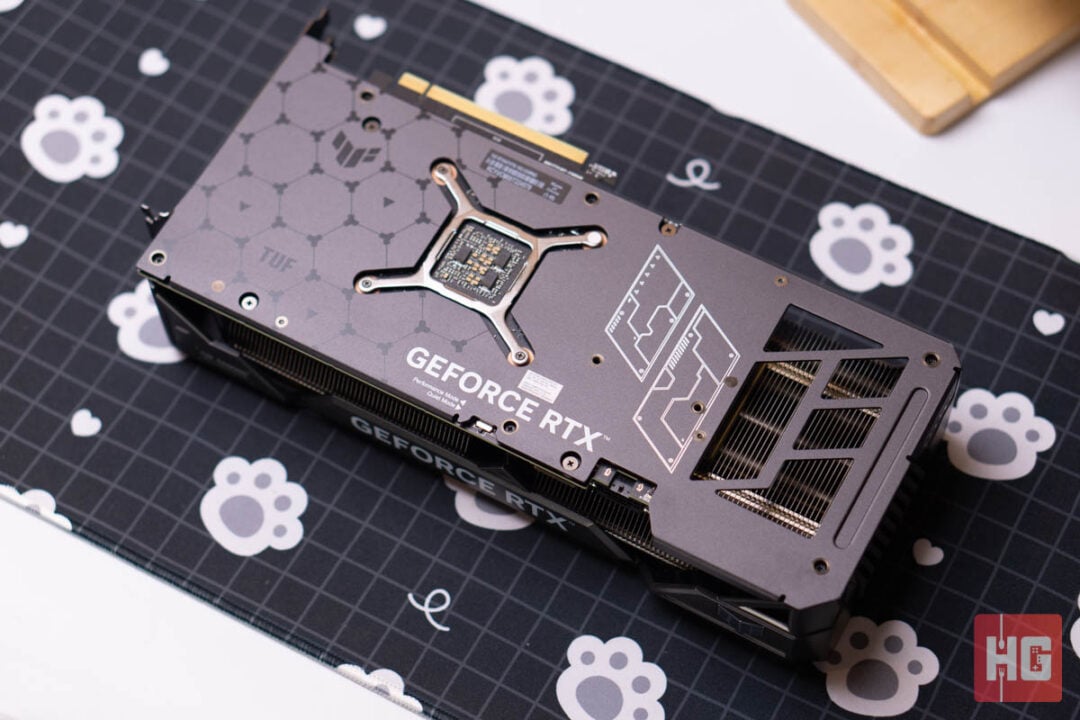
The aluminum backplate encompasses the PCB plus a little bit extra for the heatsink to prevent PCB flex plus it draws heat away from some of the components on the circuit board. There is a large cutout at the end to let air through and there are some exposed circuitries at the middle.

Located at the back are its display connections. ASUS sticks to NVIDIA’s standard by using three DisplayPort 1.4a ports and two HDMI 2.1a connections. It’s fairly run-of-the-mill and you’ll be able to connect up to 4 monitors at once.

When compared to the base RTX 4070 Ti, the RTX 4070 Ti Super has additional cores, 16GB GDDR6X RAM with 256-bit bus width (from 12GB GDDR6X and 192-bit). ASUS does apply a mild factory overclock even on the TUF Gaming version raising its clock speeds to 2640MHz (Quiet Mode) and 2670MHz (Performance Mode) from the stock 2610MHz.
All these improvements should give the ASUS TUF Gaming RTX 4070 Ti Super some headroom over the original RTX 4070 Ti. The additional memory should also give the card more performance especially at higher resolutions.
Check out the list below for the components we used for this review:
As usual, we tested the card using various graphically-intensive workloads including synthetic programs from 3Dmark, games that support DLSS 3 and Frame Generation, and traditional rasterized titles.
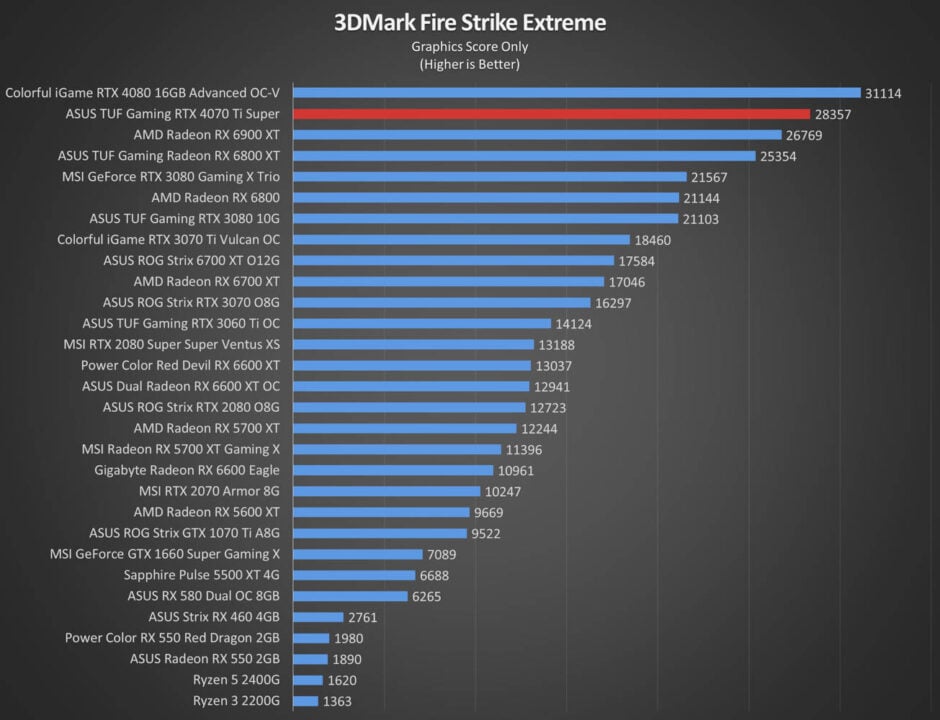
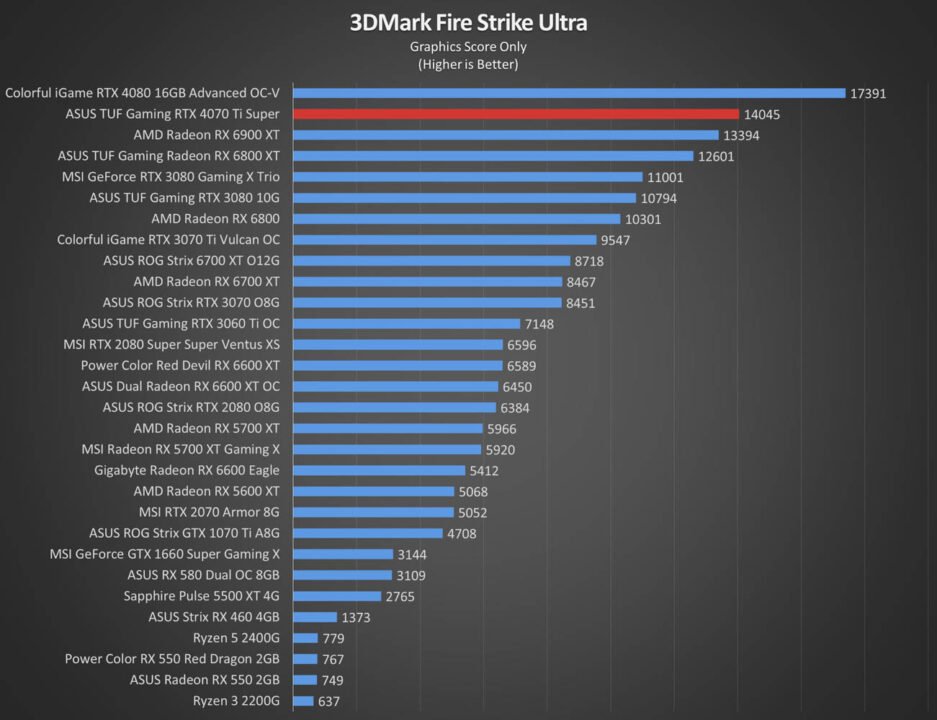
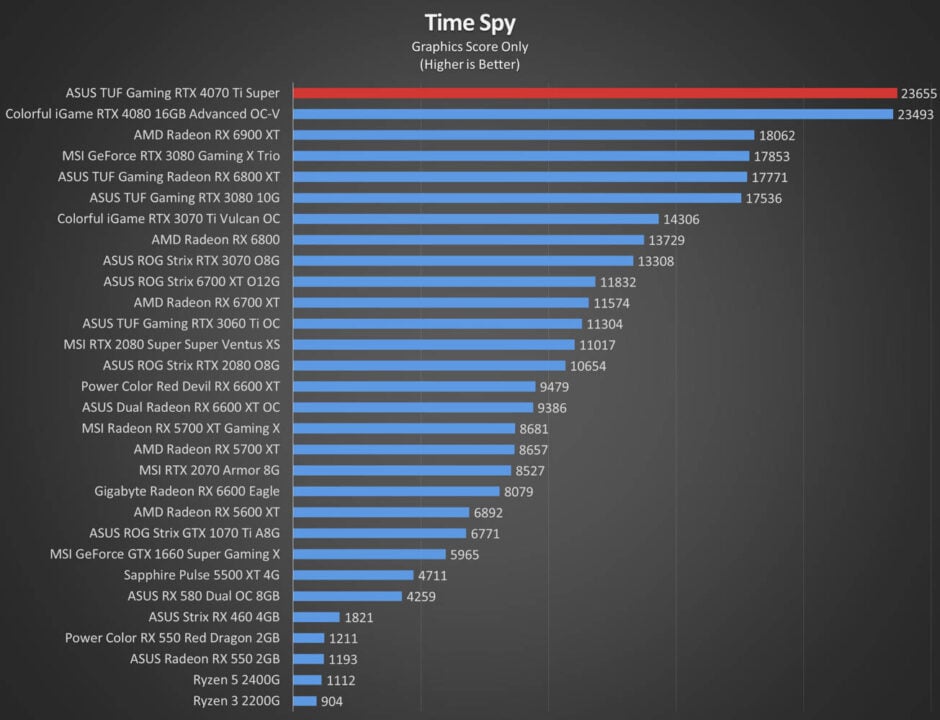
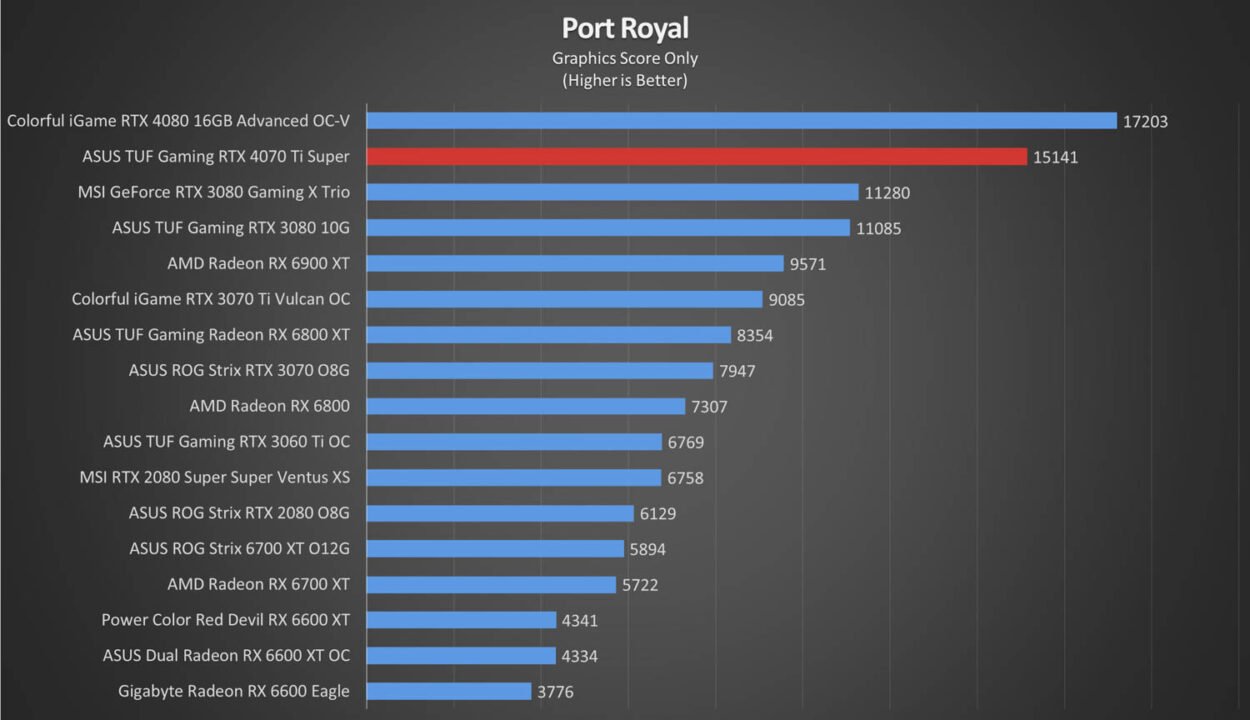
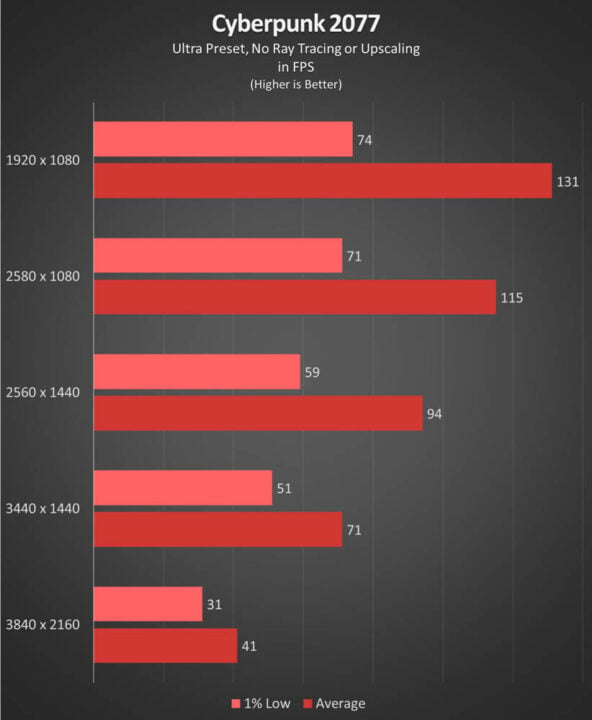

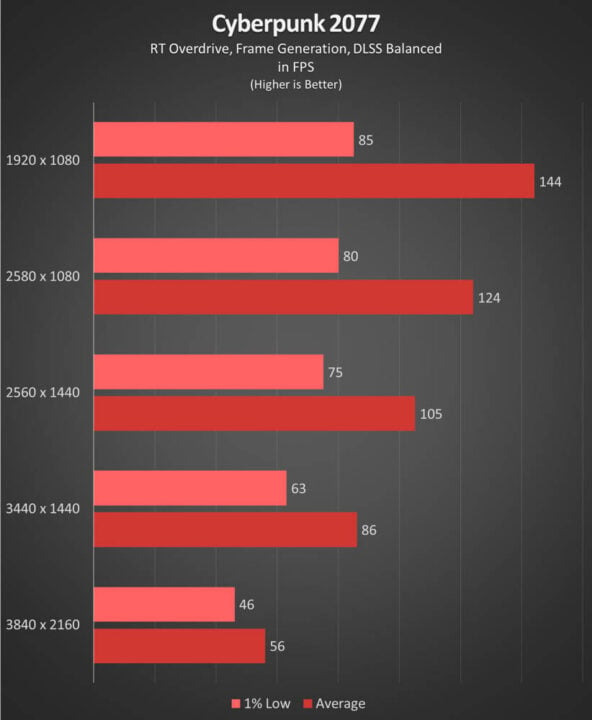
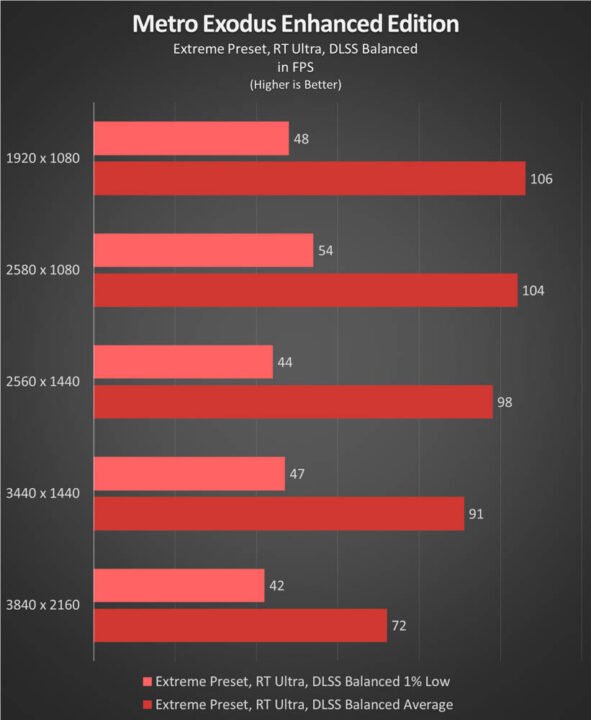



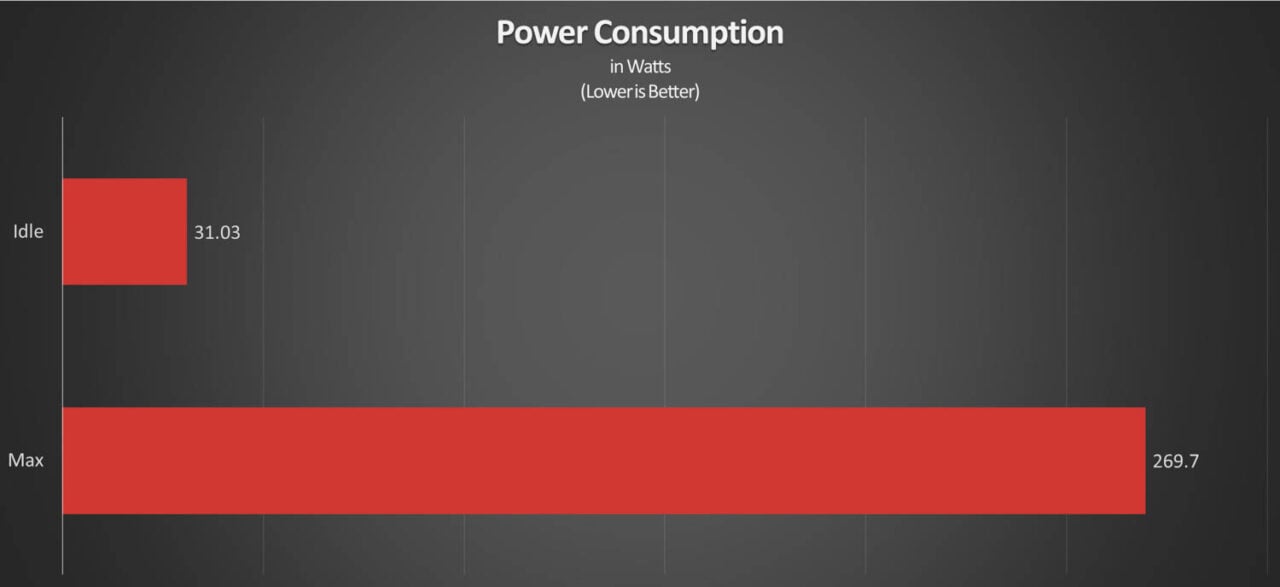
At idle, the ASUS TUF Gaming RTX 4070 Ti hovers around 30.03W. Playing graphically-demanding titles like Cyberpunk 2077 will put it to the max at around 269.7W, just around the rated 286W TDP.

Thanks to its massive heatsink, the card only lingers around 39.09°C when at idle or under light workloads. The GPU runs fairly cool at load only reaching a peak of 64.4°C. Clock speeds remain steady at even tougher workloads bouncing around 2640MHz and 2678MHz.

At PhP 56,740, the ASUS TUF Gaming RTX 4070 Ti Super is one of the most affordable aftermarket cards in its class. Its performance, based on benchmarks, are spectacular especially when you utilize DLSS upscaling and Frame Generation for those games that support it.
Rasterization performance is pretty solid as well, but frame rates start to drop at 4K especially for demanding titles. Graphically demanding titles without any form of upscaling, however, are starting to become the norm instead of the exception.
Overall, the ASUS TUF Gaming RTX 4070 Ti Super is a pretty solid upgrade for those who might upgrade from an older class of card without any kind of upscaling. ASUS just puts the cherry on top by pairing the GPU with plenty of extras like cooling, customizable RGB cooling, and a gun-metal aesthetic that fit specific builds.
The ASUS TUF Gaming RTX 4070 Ti Super is priced at PhP 56,740 in the Philippines. You can now get it via ASUS’ official Shopee and Lazada stores, as well as authorized retailers nationwide. See their official list of resellers in the Philippines via their official website.
